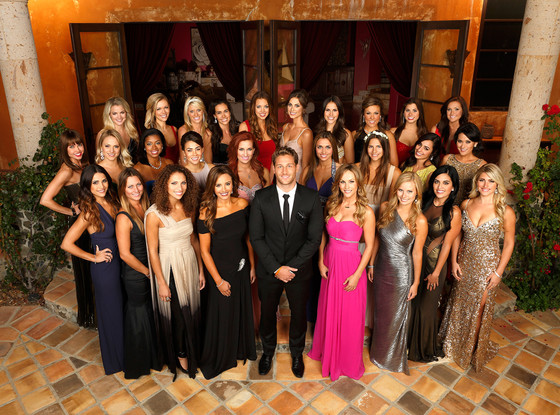When I was a kid, I saved up a lot of money to buy a crappy Samsung handheld camcorder with which to shoot my high school movies. The battery barely ever worked. The onboard mic sounded like it was caught in a rainstorm. The video screen gave everything a greenish tint. The final product always came out looking like some Indonesian Soap Opera due to the frame rate.
 …as well as my storytelling sensibilities at the time.
…as well as my storytelling sensibilities at the time.
My new Samsung Galaxy S6 can do the following things:
- Play video games (just downloaded Star Wars: Knights of the Old Republic)
- Shoot movies and films
- Play/download music
- Control a GoPro
- Record sound
- Edit together visual and audio media
- Save things automatically to the cloud.
- Display directly to my television or computer
- Schedule my air conditioning cycle
 You can tell where my priorities lie.
You can tell where my priorities lie.
In short, it’s a one-stop-shop for all things entertainment and/or comfort related. A smartphone allows anybody with an internet connection to create content that can reach billions of people. That this has happened alongside the rise of the YouTube celebrity is not a coincidence: people are seeing themselves in the PewDiePie’s of the world because the set-ups are almost exactly the same. Quality means less than the expression of ideas.
Some people would say that this is platform agnostic-ism taken to the consumer extreme. That is, it ignores the platforms for which elements of media and temperature control were created. Software integration is so widespread, now, that anything from a Keurig to a music editing suite can talk to one another. Developers have designed code that runs equally well across multiple distribution channels so that the consumer can access it regardless of their preferred device.
This is just the beginning, though, because of that last issue of preference. Some human beings will always prefer their films on the big screen. Some will always want to game with a keyboard and mouse. Some will always want their books made from pulped wood. These are not just people who grew up with that method of media delivery: Urban Outfitters is the number 1 venue for vinyl in the world, and I doubt their target demographic is aging music lovers.
Of course, most people aren’t lovers of all media. We are alternately film buffs, hip-hop heads, cookbook collectors, and air conditioner . Most of the time, however, we want to be entertained, and if we are not an aficionado of a particular artform, we’re okay with basic service, so long as it has decent quality.

Hulu HD? Not sure I need that for The Bachelor.
This also has an effect on our buying habits. Why spend $21.99 on a Blu-Ray/DVD combo of Monsters University unless we’re desperate to complete our John Goodman voice-over collection? We all know consumers are switching over from physical goods ownership to subscription-based models. This is a solid play for the average audience member and for producers of content: the former pays less for more content, while the second gets a steady stream of income.
Meanwhile, producers of traditional media are getting back to the roots and language of what made their platform unique in the first place… even if the old platforms are having to adjust. Radio channels are struggling, but radio dramas are hotter now than they’ve been since the 50s. Movie theaters are having to justify $20 ticket prices with spectacle… or they’re going the customer-first route by providing higher quality food and beverages in order to make the evening a “night out.” Comic books are reaching out to audiences that have traditionally been underserved, while the split between Indie Games and AAA-titles grows ever larger by the day.
Some people bemoan this split. Somehow, they argue, we’re losing out on the magic of a certain kind of mass experience while shackling ourselves to contracts that sell our information to third-parties via EULA’s. There’s definitely an element to consumerism and corporatism there that is too deep for this particular essay to handle, but I think if we put aside the “ownership v. leasing” argument for the moment, this is not necessarily a bad thing. For less than $30 a month, people can get a Netflix, Hulu, and Amazon Prime membership: all the couch potato fertilizer you could ever want. This model is forcing producers to compete, to produce better ideas. Some of us want spectacle, but most of us want fun, regardless of how we get it.
Our phones are leading the way, but soon, even that delineation is going to fade. What makes a phone a phone except it’s ability to call? My computer does that. When I can fling from my iPhone to my Mac to my Apple TV to my tablet, the distinction is largely academic.
Modern consumers want experiential entertainment rather than ownership. This generation is loaded with debt; we’re shifting our priorities to accommodate this. We are buying fewer cars, houses, and extraneous “stuff.” We’re buying more trips, time shares, and entertainment packages. We want something that speaks to our ideas, and when we find something we love, we’re willing to go the extra mile to hold it in our hands. Otherwise, a screen–any screen–will do.
We don’t believe in platforms because, ultimately, they don’t affect us unless we choose to allow them that access. We have agency in our choice of media. We control how we want to participate. So, for the most part, we are platform atheists.

Except when it comes to climate control. That platform is immutable.


 …as well as my storytelling sensibilities at the time.
…as well as my storytelling sensibilities at the time. You can tell where my priorities lie.
You can tell where my priorities lie.
